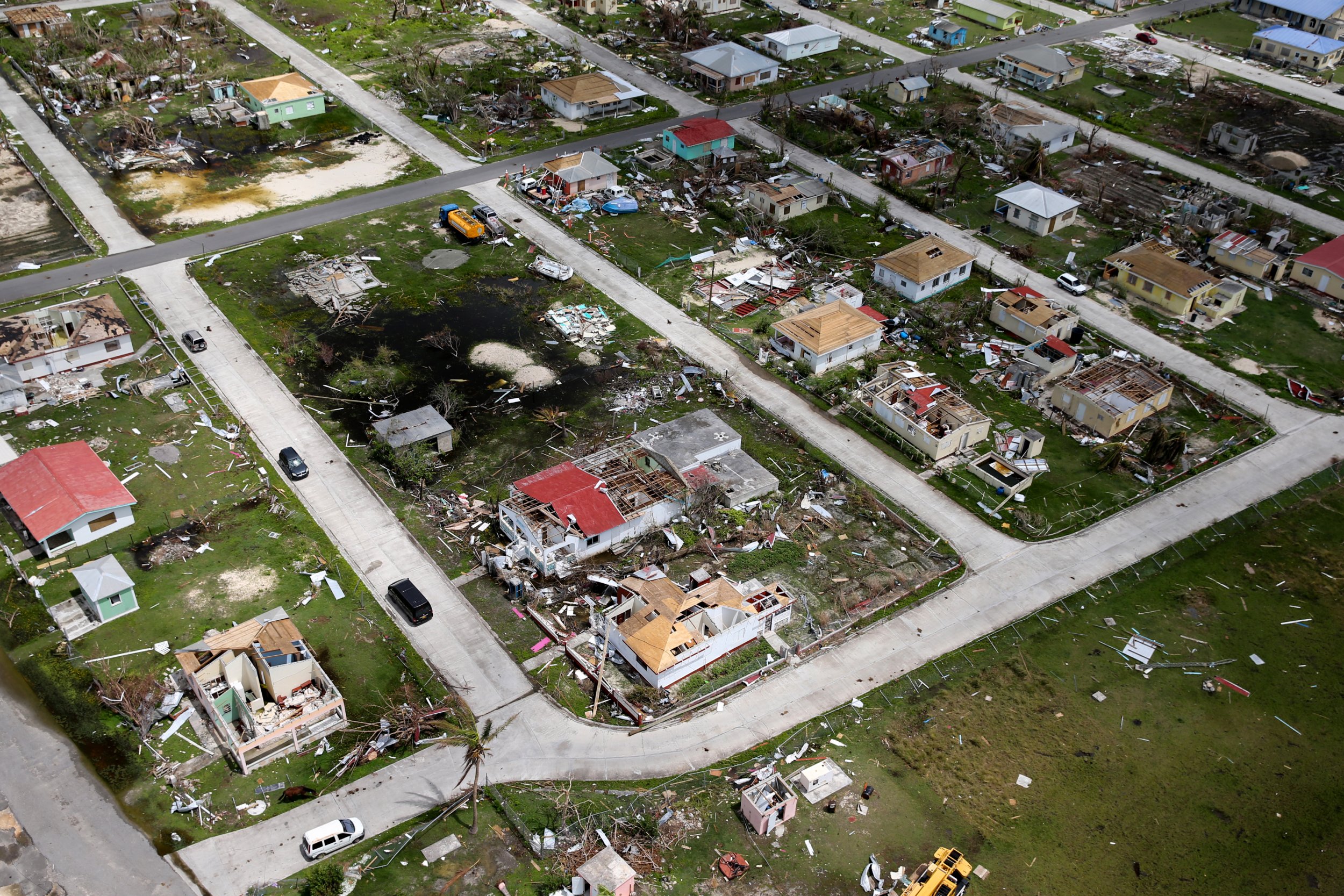
President Donald Trump's decision to withdraw the United States from the Paris climate agreement is "the most backward decision" that the U.S. government "has ever taken," according to the prime minister of Antigua and Barbuda, which was recently devastated by Hurricane Irma.
The Category 5 hurricane was the most powerful storm ever recorded in the Atlantic and caused massive devastation in the Caribbean and Florida, where Irma was responsible for more than 70 deaths.
One of the worst hit was Barbuda, where three people were killed on the tiny island of just 1,700 people. Prime Minister Gaston Browne—who is based on the larger sister island of Antigua but also governs Barbuda—said following the hurricane that some 95 percent of properties on Barbuda had suffered damage, and the island's residents were evacuated to Antigua following Irma.
Browne and other observers have cited Irma—which is one of six major hurricanes to form in 2017, making this year's Atlantic hurricane season the busiest in more than a decade—as the result of man-made climate change.
Trump has previously called global warming a "Chinese hoax" and has adopted a hostile stance on climate change since entering office. The U.S. president announced in June that he intended to pull the United States from the Paris climate deal struck in 2015, which aims to prevent global temperatures from rising more than 2 degrees celsius above pre-industrial levels.
"I think it's the most backward decision that the United States government has ever taken, ever. I think it's the most irresponsible position and that they should correct it," Browne tells Newsweek after speaking at the Global Citizen Forum in Montenegro.
"They have to live up to their climate obligations. They have a moral obligation to do so as the largest economy in the world, the most powerful nation in the world. They need to lead by example, that's the way I see it."
Read more: John McCain and the Pope slam Trump over climate change on the same day
Washington's decision to withdraw from the Paris deal has been widely criticized. Only two countries—Nicaragua and Syria—are not currently signatories of the Paris agreement, though Nicaragua has indicated that it intends to sign the deal.
During a visit to Paris in July, Trump appeared to indicate that the United States would be willing to rejoin the agreement. "Something could happen with respect to the Paris accord, we'll see what happens," said Trump in July.
But the U.S. administration issued its first written notice to the U.N. that it intended to withdraw from the deal in August. No nation can officially announce its decision to leave until November 4, 2019.
The process of leaving then takes another year, meaning that—should Trump proceed on his stated path—the United States would leave the Paris accord around the time of the 2020 presidential election. Any future U.S. president could opt back into it.
Newsweek traveled to Montenegro courtesy of Global Citizen Forum.
Uncommon Knowledge
Newsweek is committed to challenging conventional wisdom and finding connections in the search for common ground.
Newsweek is committed to challenging conventional wisdom and finding connections in the search for common ground.
About the writer
Conor is a staff writer for Newsweek covering Africa, with a focus on Nigeria, security and conflict.
To read how Newsweek uses AI as a newsroom tool, Click here.








